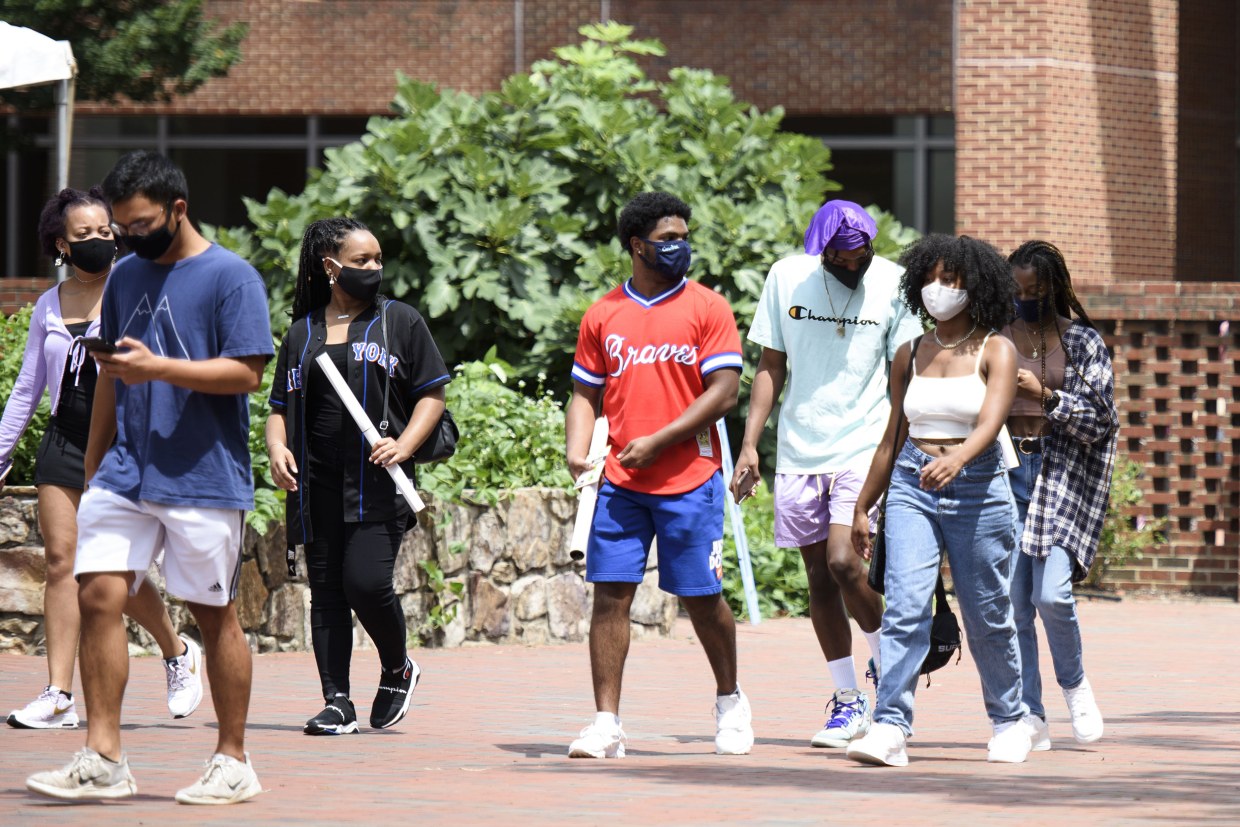Experts say that Black and Latino students would suffer disproportionately if the Supreme Court decides to reverse a long-standing policy on affirmative action programs in the U.S.
On Monday, the Supreme Court said it would hear two cases challenging race-conscious admissions at Harvard University and the University of North Carolina.
If the court rules against race-conscious college admissions programs, also known as affirmative action, it could have an outsize effect on Black and Latino college students.
One of the most comprehensive studies on the issue, published in 2020, found that Black and Latino students suffered after California’s public universities banned affirmative action in a 1996 ballot initiative. Following the ban, more students of color enrolled at less selective institutions and, as a result, were less likely to get college degrees, graduate degrees or jobs in the STEM fields.
“When Black and Hispanic students lost access to California’s more selective universities, they lost access to this public investment,” Zachary Bleemer, the study’s author, told NBC News.
The findings also showed that the ban discouraged thousands of students of color annually from applying to the University of California system, although most still met the qualifications for enrollment.
Bleemer, a postdoctoral fellow with Opportunity Insights, a research group at Harvard University, added that these losses were also felt in the labor market.
“Black and Hispanic young workers ended up with relatively lower-paying jobs in the state over the next, at least, 15 years,” he said.
Cara McClellan, an assistant counsel at the NAACPs Legal and Education Defense Fund, said it would be unusual for the court to go against years of upholding affirmative action.
“Any ruling that calls into question the legality of race-conscious admissions would be a huge reversal of more than 40 years of Supreme Court precedent,” McClellan said. “It would be quite a radical act for that to be the outcome.”
Such an outcome, McClellan said, would dramatically reduce racial diversity at private and public universities.
“The end of holistic admissions would lead to a severe reduction in the number of Black and Latino students at Harvard and, if the ruling is broader, at other universities,” McClellan said. “Race-conscious admissions has been key to providing diversity on campus.”






0 Comments